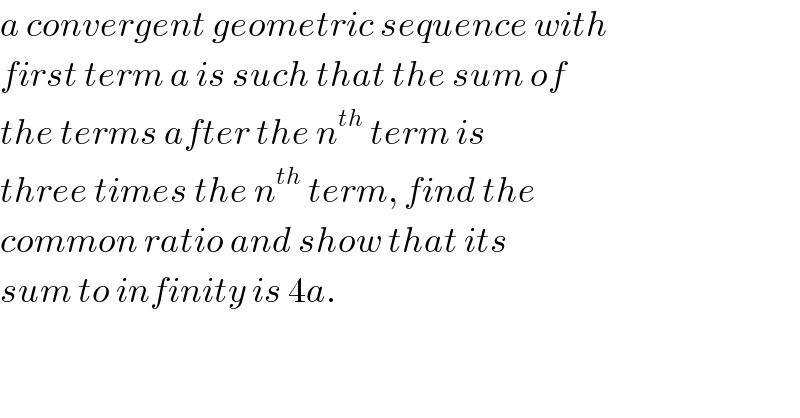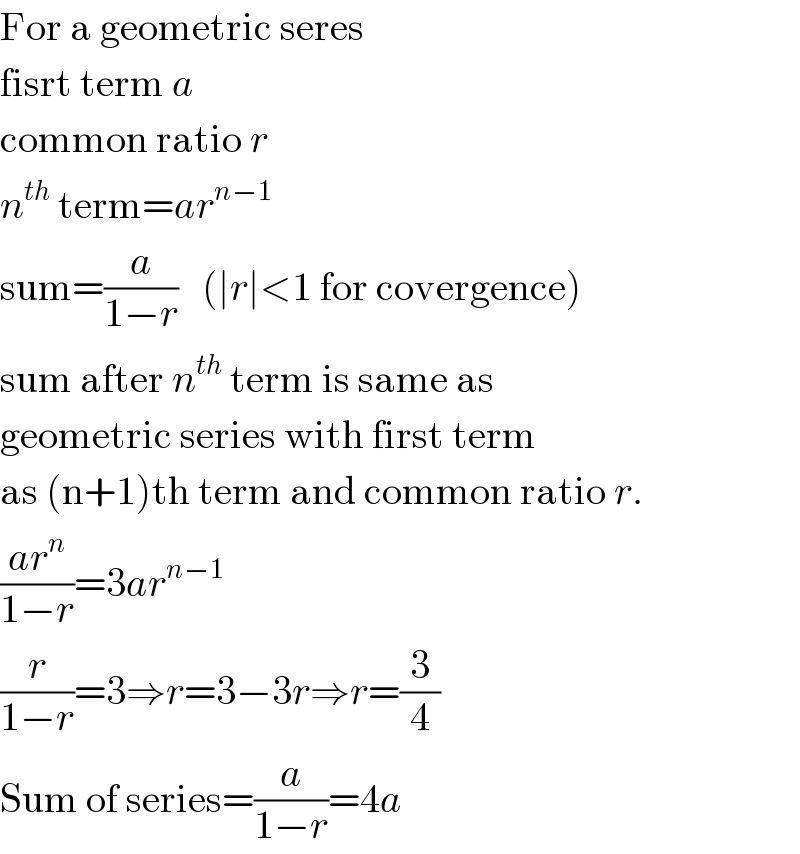
Question and Answers Forum
Question Number 92820 by prince 5 last updated on 13/May/20

Answered by prakash jain last updated on 12/May/20

| ||
Question and Answers Forum | ||
Question Number 92820 by prince 5 last updated on 13/May/20 | ||
 | ||
Answered by prakash jain last updated on 12/May/20 | ||
 | ||
| ||